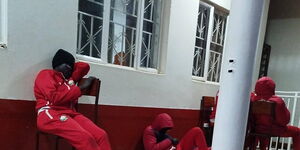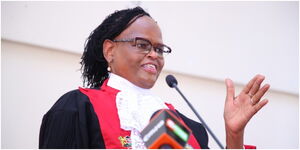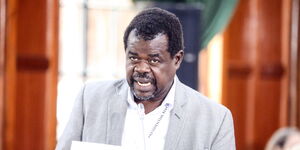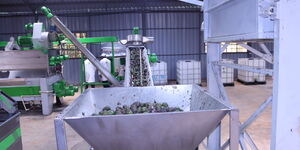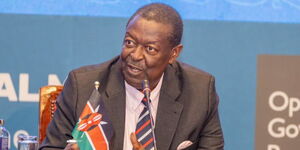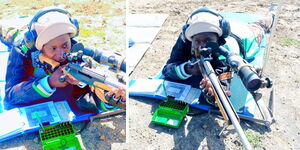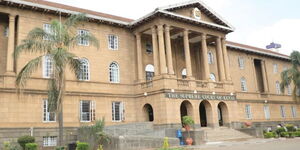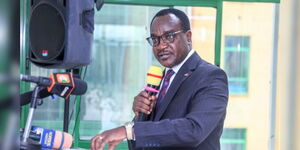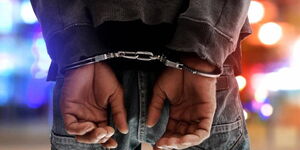Interior Cabinet Secretary Kipchumba Murkomen, Inspector General of Police Douglas Kanja, and Directorate of Criminal Investigations (DCI) boss Mohamed Amin were directed to take oath as they prepared to appear before the Senate.
Senate Speaker Amason Kingi, after receiving recommendations from Senators Edwin Sifuna and Moses Kajwang, directed the three senior members of the country's security apparatus to take the oaths as they prepared to answer questions over the mysterious murder of Albert Ojwang.
"Following what Senator Kajwang has said, we are here to find nothing but the truth. And the only way we can be able to get the truth is if statements are made under oath," Kingi stated.
"Therefore, Clerk of the Senate, before we start, kindly administer the oath to the team," he directed.
Homa Bay Senator Kajwang, where the late Ojwang hails from, had called for the implementation of Article 125 of the Constitution and administer an oath to Murkomen and Co.
Article 125 of the Constitution of Kenya grants Parliament and its committees the power to summon any person to appear before them to give evidence or provide information.
Specifically, it states that, either House of Parliament (National Assembly or Senate), and any of its committees, has the authority to summon individuals.
For the purpose of obtaining evidence or information, a House of Parliament and its committees have the same powers as the High Court such as enforce the attendance of witnesses and examine them under oath, affirmation, or otherwise. It also gives them authority to compel the production of documents, and issue a commission or request to examine witnesses abroad.
He cited that without the oath, serious consequences such as contempt of the Parliament, perjury which are criminal offences, would befall on the Senate.
Ojwang was confirmed dead on Sunday, June 8, just hours after he was picked from his native home in Homa Bay County, and locked up at the Central Police Station in Nairobi.
He was reportedly found unconscious during routine cell checks and was pronounced dead upon arrival at Mbagathi Hospital at around 1:39 am on Sunday.
Disputing reports over police being responsible for Ojwang’s death, the National Police Service stated that Ojwang deliberately hit his head on a cell wall, leading to his eventual death.
However, when the autopsy report by pathologists finally came out, it was confirmed that the late Ojwang died from head injuries, neck compression and multiple soft tissue trauma. This ruled out self-inflicted wounds, as initially suggested by NPS.

